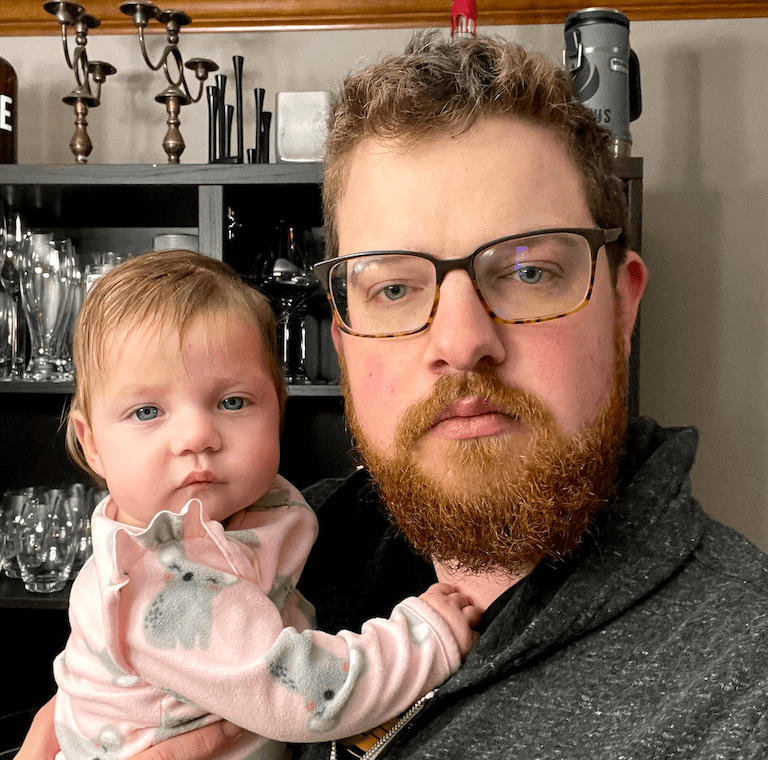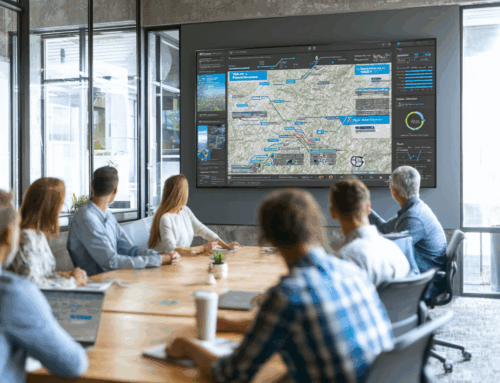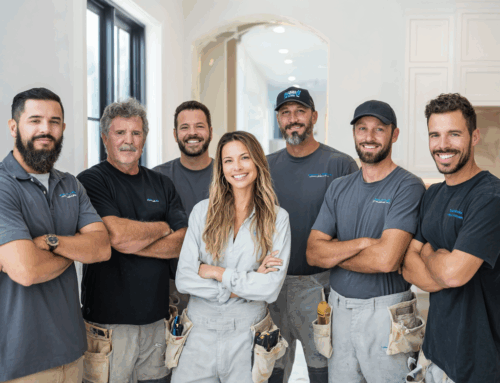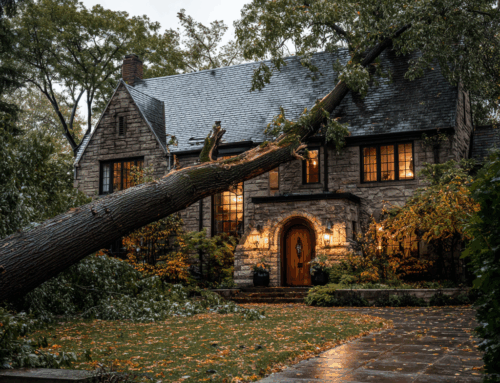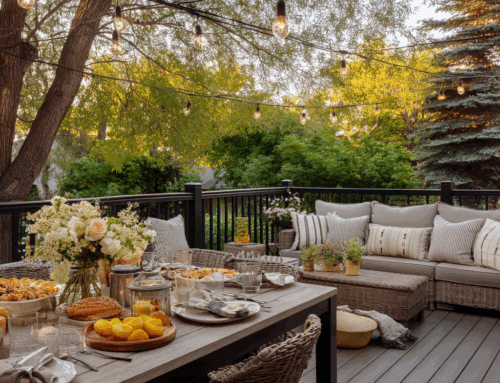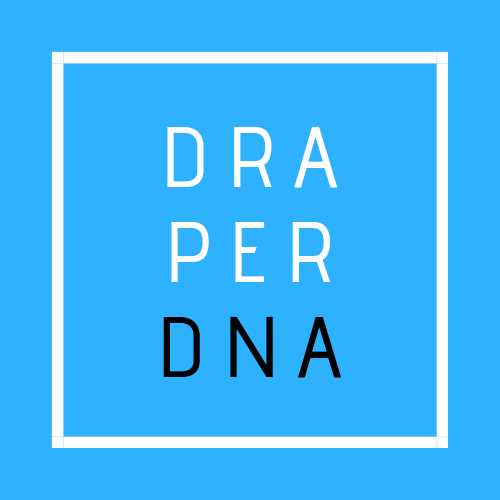There is a Difference featuring Joe Sterne
April 19, 2021
Do you know that 99.9% of businesses in America are small businesses according to the SBA? These same businesses generate 50% of our GDP and half of all jobs in America. We believe there is a difference with a small business and so much for us to learn. Meet Joe Sterne and his wife, Julia, who created Obvious Coffee in 2016. They tell us their unique story as small business owners and share the importance of the personal touch. Enjoy this inspiring “There’s a Difference” series interview.
Joe: My name is Joe Sterne and I founded Obvious Coffee Roasters with my wife Julia in 2016. We offer small batch, freshly roasted coffee, specifically roasted via the fluid bed method, to people in Ohio as well as across the country. We’re still going strong with farmer’s markets and direct-to-consumer on the web as well as working on a coffee trailer hopefully this summer.
Tell me how you made a difference in creating the company?
Joe: I would say one of the biggest things that actually drove us to start our own coffee company was some of the experiences I’ve had in third wave coffee shops. I am a type two diabetic, so I have to be very careful with what I put in my body, especially in liquid form. I find that a lot of these third wave shops were very particular about what sweeteners and other accompaniments that you could put into the coffee would be. It wasn’t uncommon to ask them if they had artificial sweeteners and have them look at you like you were absolutely insane. I didn’t like that experience personally. I didn’t enjoy having somebody say that “Hey, artificial sugar is bad and you’re a bad person for using it,” when I actually have a medical reason why I should be using it. That drove me to really look at my newfound hobby of coffee roasting, which I stumbled upon in a slightly different light, just because I wanted to make sure that we could offer a compassionate experience for people that want to have better coffee, but they don’t know where to go. They’re used to a Starbucks; they’re used to a Dunkin; they’re used to a Tim Horton’s or Waffle House and they want to try something different, but they might be a little bit intimidated. That’s where we come in. We offer great coffee that can swing with the best of them in terms of third wave shops but we’re much more welcoming.
How do you create a personalized experience for every customer?
Joe: We create a personalized experience for every customer in a variety of different ways. As I mentioned previously, we do direct-to-consumer via the web. We are using MailChimp specifically for some of our email marketing. We’re currently using Square as an in-person checkout process which does offer loyalty management as well as the ability to text and email. For our website, we’re actually using Squarespace, and that’s giving us the option to blog alongside our products, but it’s also giving us the ability to match up the people that are ordering stuff online with the people that we’re working with in-person and making sure that that is an enjoyable experience. Also, in person, we have several regulars at the farmer’s markets that I work at specifically to a point where I’ve started just memorizing their order. It’s stuff as little as that; where you see them walking down the street when it’s outside or walking inside the building during the winter months and saying, “Hey, hi, nice to see, do you want your usual?” A lot of the time, not all the time, but a lot of the time, people really do enjoy that because they feel like somebody cares enough to remember their order and wants to make sure that they’re having an enjoyable experience while they’re shopping.
Why is “fresh” so important to Obvious Coffee?
Joe: “Fresh” is very important to Obvious Coffee because it’s also very important to coffee in general. A green coffee bean can last anywhere from, depending on how you store it, anywhere from months to years. But as soon as you roast it, that’s when you really not only change the molecular structure of the bean, but you also essentially turn on a timer. I like to compare coffee to pepper. Peppercorns, they smell great when they’re completely intact. As soon as you bash that open, you’re exposing more of the surface area of that peppercorn to the air. The volatile oils that are in that peppercorn start to evaporate. The same thing happens with coffee. If you want your coffee to last the longest, you actually keep it whole-bean and then you grind it as soon as you want to brew it — or right before you’re planning on brewing it — just so you are getting some of those volatile oils in your coffee not evaporating into the air. However, even with grinding it before, the longer that you wait for it to brew that coffee over time, the more oils naturally kind of start to evaporate. It doesn’t necessarily go bad, but what happens, the flavor kind of starts to decrease to a certain point where if you are drinking coffee that was roasted a year ago, opposed to drinking coffee that was roasted a few days ago, it’s night and day in terms of the flavors that you’ll taste and, from what we’ve seen, the enjoyment of the coffee itself.
What inspired this idea and how has it been impacted by the pandemic?
Joe: Obvious Coffee was started in 2016 when I came across a YouTube video of how to roast coffee at home. At the time, I was looking for a new hobby and I saw this YouTube video; they had a popcorn popper they found on Amazon, and some green beans. I thought, “Well, you know what? I could do that. This sounds like it could be interesting.” So, I bought those things, took them out to the back porch and it turns out I really like making green things brown. After that initial part with the popcorn popper, I ended up going onto a website called Sweet Maria’s, which is a very well-known West Coast based hobbyists roaster site. From there, I got myself what’s called a Behmor, which is another brand of a drum roaster that roasts just under a pound reliably and I started roasting more and more coffee. It got to a point where my wife and I couldn’t drink all of this coffee before… It would just sit there for weeks and weeks due to caffeine limits. At that point in time, we started giving it to friends and family. Overwhelmingly the feedback we received was, “This is amazing. How much does it cost? Where are you selling it?” And up until that point in time, I didn’t even consider actually doing this as a side business; It was more of just, “Hey, I’m having fun, and this was cool.”
We ended up finding a local farmer’s market that was right down the road and we paid the booth fee, went there and we started selling coffee, both brewed and bagged to test out the theory, to see if strangers would actually come up, try it, drink it, and go from there. They did, if that wasn’t abundantly clear at this point in time. From there, we ended up looking at other farmer’s markets and within the last couple of years, we started also looking at the B2B side of things. Now we supply a few donut shops, a smoothie shop, and actually a shop in Aurora farms, as well as some other local Ohio places with coffee from a wholesale perspective. It’s something that has definitely grown very carefully over the last few years, and it’s been an absolute blast.
When the pandemic hit in the beginning of 2020, we actually decided to take a break from the market because we thought, naively at the time, that it would be over in six months. Right around March, we told our vendor friends, “We’re going to take a break; we’ll see you guys in a few months, once all of this blows over.” The end of July rolled around, and we realized that, “This isn’t going anywhere anytime soon.” So, we think, “All right, we’ll come back in August, we’ll be super careful. We’ll have PPE on and see how the market goes,” because at that point in time, I wasn’t really sure what the demand was going to be, nor was I sure of the traffic.
What we found was actually pretty surprising for us, that because of where the pandemic was in August, we ended up having double the sales that we would normally have the prior August because people wanted to be outside, they wanted to shop in a safe environment, and most importantly, they wanted to buy local. We’ve noticed since basically August of 2020 to now, that there’s been a big spike in our sales and demand due to that, which we’re very thankful for. I know that there are some industries that aren’t as lucky right now when it comes to sales during the pandemic, but we actually found that our sales grew both direct-to-consumer over the website and definitely in-person at farmers markets.
If you could give one piece of advice to other entrepreneurs during this time, what would it be and why?
Joe: I would say that the biggest piece of advice I would have for people at this point in time would be to have empathy with your customers. Have empathy with your suppliers and have empathy with your coworkers, especially if you’re employing other people. It’s still a very strange time. It’s been over a year in a pandemic; the vaccine rollout, while thankfully it’s rolling out, has been very inconsistent. People don’t know when they’re necessarily going back to an office or in person if they are in certain careers while other people never had the luxury of not going into work. So being understanding of people’s different experiences and having some empathy for their situation goes a really long way, especially when it comes to customers. A lot of customers are in unstable situations at this point in time and they’re not sure what makes sense for them going forward. If you amplify that uncertainty or just kind of steamroll over it, you’ll probably lose them as a customer, as opposed to listening to them and understanding their point of view, which will generally help you not only keep their business but make them hopefully a more loyal consumer to you.
Thank you, Joe.
If you would like to watch the entire interview, please click HERE to visit “There is a Difference featuring Joe Sterne” on YouTube.
Talking with Joe was an incredible experience, and we are inspired at the work he and Julia have done. If you’re interested in connecting with us to tell your story, please contact Abby Draper at abby@draperdna.com.
